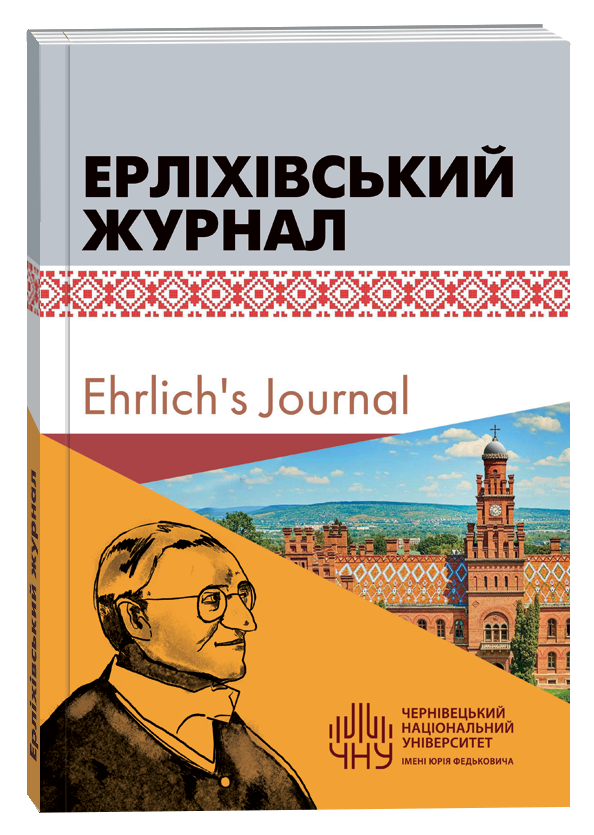THE UTILITY OF THE CONSULTATION ROOM IN CIVIL JUDICIAL PROCEEDINGS
DOI:
https://doi.org/10.32782/ehrlichsjournal-2025-12.06Keywords:
deliberation room, judge, independence, impartiality, court decision, collegial consideration of the case, court sessionAbstract
The article examines the issue of the deliberative room institute abolition during the adoption of a judicial decision in civil proceedings and the advantages and challenges of this innovation. It is emphasized that the main guarantee of a legal and fair judicial decision is the independence, impartiality, and objectivity of the judge. It is noted that there is no single opinion in the scientific field on this issue: some approve of the proposed changes, while others, on the contrary, insist on leaving the previous procedure for adopting court decisions. The author considers the scientific provisions of different positions, expressing her own point of view. The provisions on the problematic aspects of the functioning of deliberative rooms in courts are highlighted. First of all, attention is paid to the material base. Secondly, the issue of the possibility of using communication means in the deliberative room is not fully clarified in practice. Thirdly, the legislation does not regulate the time a judge spends in the deliberative room, the possibility of taking breaks, and their duration. The author determines that the exit of the judge (judges) to the deliberative room is a kind of guarantee of the absence of influence on the court, the impact of the participants in the trial and those present on the essence of the dispute, and pressure on the judge in various ways. It is argued that this institution is practical and necessary not only during collegial consideration of the case, as it allows judges to be in the same room to discuss the circumstances of the case, expressing their opinions, positions, and reflections on the adoption of a court decision, but also during individual consideration of the case, it remains no less important and appropriate, which allows the judge to get isolation from outside influence. It is noted that the abolition of the institution of a deliberative room does not change the judge's obligation not to disclose information that constitutes the secret of the adoption of a court decision, and the closed court session, which is the judge's obligation. The paper focuses on innovations not only regarding the procedure for adopting a court decision but also regarding the procedure for issuing court decisions, and new rules for the consideration of a case in absentia. The conclusion has been made that some time is needed to draw final conclusions about the advantages and disadvantages of the relevant innovations. Only then it will be possible to clearly state about the effectiveness of implementing these innovations in practice.
References
Konventsiia pro zakhyst prav liudyny i osnovopolozhnykh svobod vid 4 lystopada 1950 roku. Ofitsiinyi veb portal Verkhovnoi Rady Ukrainy. Retrieved from: https://zakon.rada.gov.ua/laws/show/995_004#Text
Pro sudoustrii i status suddiv: Zakon Ukrainy vid 02.06.2016 № 1402-VIII / Verkhovna Rada Ukrainy. Retrieved from: https://zakon.rada.gov.ua/laws/show/1402-19#Text
Tsyvilnyi protsesualnyi kodeks Ukrainy: Zakon Ukrainy vid 18 bereznia 2004 roku zi zminamy ta dopovnenniamy. Retrieved from: http://zakon.rada.gov.ua
Tymchenko, H. P. (2014). Vynesennia i oholoshennia rishennia sudu v tsyvilnomu, hospodarskomu ta administratyvnomu sudochynstvi Ukrainy. Mizhdystsyplinarni humanitarni studii. Seriia : Pravnychi nauky. Vyp. 1. S. 44–50. (S. 44).
Padun, R. V. (2020). Taiemnytsia naradchoi kimnaty yak harantiia nezalezhnosti ta neuperedzhenosti sudu. Innovatsiinyi rozvytok pravovoi nauky v umovakh modernizatsii suspilstva : mater. Kh Mizhnar. nauk.-prakt. konf. (Kyiv, 28 liutoho 2020 r.). Kyiv : NAU, S. 158–160.
Ostriichuk, O. P. (2012). Pro deiaki problemy zabezpechennia taiemnytsi naradchoi kimnaty v kryminalnomu sudochynstvi. Yurydychna hazeta. № 3. S. 27–39. (S. 30).
Drach, D. L. (2023). pravove rehuliuvannia zdiisnennia sudochynstva sudamy zahalnoi yurysdyktsii v Ukraini: problemy praktychnoho zastosuvannia ta shliakhy yikh vyrishennia. Yurydychnyi naukovyi elektronnyi zhurnal. № 3. S. 513–518. (S. 514).
Prokhorov, P. A. (2020). Naradcha kimnata: suchasna neobkhidnist chy «rudyment» mynuloho? Pidpryiemnytstvo, hospodarstvo i pravo. № 9. S. 54–59. (S. 56, 59).
Hudyma, M. M., Hudyma-Pidverbetska, M. M. (2024). Taiemnytsia naradchoi kimnaty yak harantiia nezalezhnosti suddiv ta umova pravosudnosti sudovoho rishennia: pravovi ta moralni aspekty. Aktualni problemy vitchyznianoi yurysprudentsii. № 3. S. 16–23. (S. 19).
Pro sudove rishennia u tsyvilnii spravi: Postanova Plenumu Verkhovnoho sudu Ukrainy № 14 vid 18.12.2009 roku (p. 16). Retrieved from: https://zakon.rada.gov.ua/laws/show/v0014700-09#Text
Butyrska, I. A. (2021). Vplyv unifikatsii protsesualnykh kodeksiv na operatyvnist hospodarskoho sudochynstva. Suchasni vyklyky ta aktualni problemy sudovoi reformy v Ukraini : materialy V Mizhnar. nauk.-prakt. konf. (29 zhovtnia 2021r., Chernivtsi). Chernivtsi : 445 s. S. 181–184.
Prokhorov, P. A. (2020). Naradcha kimnata: suchasna neobkhidnist chy «rudyment» mynuloho? Pidpryiemnytstvo, hospodarstvo i pravo. № 9. S. 54–59.
Kravchuk, V., Stashkiv, N. (2017). Povaha do sudu yak odyn iz pryntsypiv pravovoi derzhavy. Aktualni problemy pravoznavstva. Vyp. 4 (12). S. 7–33.
Luspenyk, D., Sakara, N. (2023). Naradcha kimnata: nadmirnyi formalizm chy zaporuka spravedlyvoho sudovoho rozghliadu. Retrieved from: https://sud.ua/uk/news/blog/285980-naradcha-kimnata-nadmirniy-formalizm-chizaporuka-spravedlivogo-sudovogo-rozglyadu







